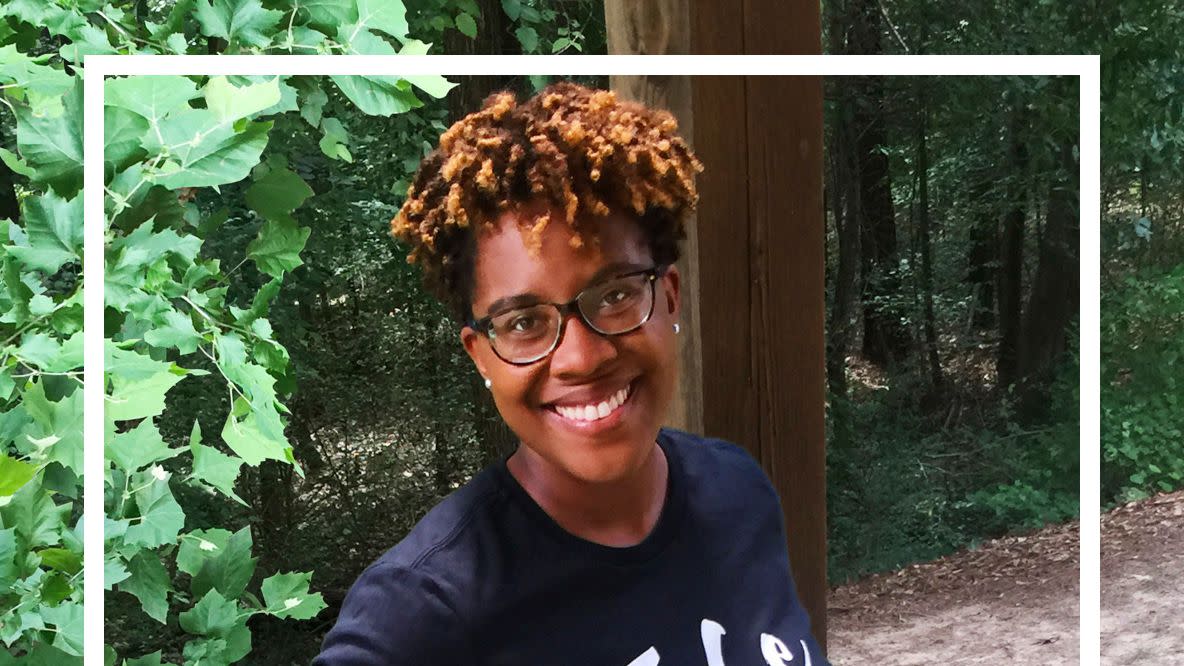This Dietitian Is Challenging the Eurocentric Idea of Healthy Eating

Tamara Melton, R.D.N.
"Healthy eating doesn't mean completely changing your diet or giving up dishes that are important to you," says Tamara Melton, R.D.N. "We've been taught that there's one Euro centric way to eat healthfully, but that's not the case. Instead, we need to understand what people from different communities are used to eating, the foods they have access to, and how their heritage comes into play. Then we can help them incorporate those things in a healthy and sustainable way."
Doing that has been a serious challenge because of a lack of diversity among nutritionists — less than 3 percent in the U.S. are Black. "At our national conferences, I would sometimes see only three other people of color out of 10,000," says Melton. Determined to change things, she helped start Diversify Dietetics, a nonprofit that recruits students of color and helps them navigate college and the profession's complex training requirements. About 200 students have entered one of its programs.
In her own work as a nutritionist, Melton puts a special emphasis on helping women improve their health through the food they eat. As the owner of Tamara's Table, a virtual practice, she provides functional nutrition counseling for women of color. Here, she explains why food is one of the most powerful tools we have. (Related: Racism Needs to Be Part of the Conversation About Dismantling Diet Culture)
What is functional nutrition and why is it so important?
"It's looking at the root cause of a condition. For instance, if someone has diabetes, we know that starts with insulin resistance. What causes it? Or if a client says she has heavy periods, we can test to see if there's a hormone imbalance, and then we look at foods that can help. But it's also about educating patients and helping them advocate for themselves to get the care they need. Education is emancipation."
What's an important point that often goes unrecognized when it comes to people of color and food?
"There are reasons people eat the way they do, and a lot of it is connected to what they have access to in their area. Our approach is to meet them where they are and help them find the nutrition in the food they do eat, like potatoes or yucca, and show them a way to prepare it that they can feel good about."
What should people keep in mind when it comes to eating healthfully?
"One meal is just a blip on the radar. If you're generally eating well and giving your body what it needs to feel good, then deviating from that sometimes is nothing to feel bad or guilty about or ashamed of. Food is not an all-or-nothing proposition. It should be enjoyable, fun, and creative."
Are there certain nutrients women tend to be lacking?
"Yes. Vitamin D — a lot of Black women have a deficiency in it. Magnesium, which can help with stress and insomnia. Fiber is also something most women don't get enough of, and it's crucial."
Which ingredients can really add flavor to a meal?
"My husband and I recently took a virtual cooking class with a chef who used all kinds of salt. What got me really excited was the gray salt — it has a different taste from white or pink salt, and it's amazing. I love to put it on watermelon. Also, try vinegars, like balsamic or sherry vinegar, to brighten your food. Finally, look at different cultures and the ways they achieve flavor profiles. For instance, maybe they use olives or anchovies for saltiness. Experiment with different things."
Share some of the dishes you love to make.
"My family is from Trinidad, and I love roti with curry. That would be, hands down, my last meal. Also, and this is such a dietitian answer, I love to make beans. They're so hearty, versatile, and comforting. And vegetables — I want people to see how good they are, so I always bring them to gatherings. For instance, I make a roasted-vegetable dish with Brussels sprouts, carrots, onions, garlic, mushrooms, olive oil, salt, and pepper. I'll use a little bacon fat for smokiness and to hark back to our Southern heritage." (Related: The Most Popular Types of Beans — and All Their Health Benefits)

